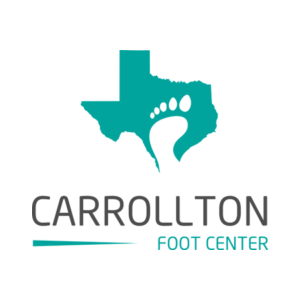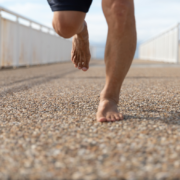Barefoot Running: The Pleasure and the Pain
With the foot pain many of us experience from running, it’s tempting to turn to the Barefoot Running Movement for answers! However, according to the American Podiatric Medical Association, the benefits of barefoot running have never been confirmed by research. Although the movement touts upsides such as improved circulation, coordination, and strength, you should speak with our experts at Carrollton Foot Center to ensure barefoot running will be safe and effective for you.
Bare Feet Vs. Regular Shoes
According to the Barefoot Running Movement, humans have been running barefoot since ancient times. Shoes, however, are a recent creation that stunts the way you are naturally designed to move. This notion that regular running shoes are unnatural may make sense to you if your feet hurt while running. This may also explain the success of “minimalist” or “five-toed” shoes. In between bare feet and regular running kicks, minimalist shoes act as a compromise to the pros and cons of pure barefoot running.
Benefits of Barefoot Running:
- Encourages a more natural running This can help reduce impact on your joints, shorten your strides, and increase athletic performance.
- Promotes landing on the ball of your feet as opposed to “heel striking,” reducing the chance of injury and plantar fasciitis.
- Strengthens the muscles in your foot that aren’t usually engaged in regular shoes. Progressively, this could correct flat feet and similar arch problems.
Downsides of Barefoot Running:
- Increases risk of infection and skin injury. This is especially the case for diabetics, who may not have proper feeling in their feet.
- Takes time getting acclimated to the “natural” running form. Acclimation struggles also extend to not having access to clean or safe terrain.
- Heightens the chance of stress fractures and Achilles injuries. This is due to lack of foot support.
Ultimately, it is necessary to weigh both sides to see if barefoot running is right for you. Consult with Board-certified podiatrist Dr. Naghmeh Lilly Khavari, a well respected expert who is eager to assist her patients in Denton, Dallas, and Collins Counties. She treats a vast array of issues, from ingrown toenails to plantar fasciitis. Call Carrollton Foot Center’s office (located in Carrollton, Texas) at (469)-998-3668 to book your initial consultation today!




